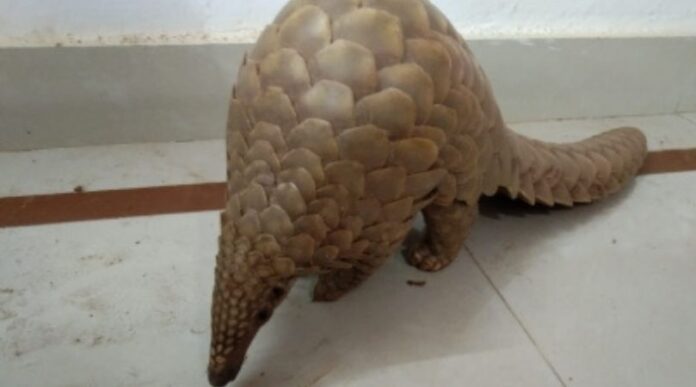GUWAHATI:
Pangolin scale is replacing rhino horn smuggling in the Northeast, after the police and forest department in Assam intensified security measures to curb poaching of one-horned rhinos.
“We have in recent times been able to stop the poaching of one-horned rhinos and smuggling of its horns, but we have noticed a sudden rise in seizures of pangolins from the region,” a senior official of the Wildlife Crime Control Bureau (WCCB) said.
“Pangolins caught dead or alive in Meghalaya’s Garo Hills are being trafficked to China’s Yunnan province via Burma, which shares a 1,600km border with Northeast like Arunachal Pradesh, Nagaland, Manipur and Mizoram,” the official said.
There is a sharp rise in rescue of smuggled pangolins, proving the existence of a trafficking network using the India-Burma-China route. Smugglers prefer live pangolins, which fetch more money (in lakhs) than the scales (up to Rs 20,000), said the official.
“Tribal people from Garo Hills catch the pangolin during the month of August-September. They catch the pangolins in the guise of collecting minor forest produce,” the official noted.
As many as 23 cases of seizures of the pangolin scale were recorded by WCCB in 2021. In 2022, 12 such cases have been detected so far.
“We have seized 55 kg og pangolin scales in Meghalaya in 2020. For this, the poachers have to kill 130 pangolins,” the official said.
He also said the traffickers sometimes use Meghalaya as stockpiling all consignments, and North Bengal as the transit point for sending consignments to South East Asia vial Nepal.
“Smugglers now use interior roads and desire paths (a path created due to erosion caused by human or animal traffic) to transport their consignments from Meghalaya to Assam, especially to Kamrup (Metro), Kamrup and Goalpara districts,” he also said.
Pangolin scales are made of keratin, the same material that makes up fingernails, hair and horn. Pangolin scales, like rhino horn and tiger parts, have been used for preparing traditional medicine in China and several other South East Asian countries.
Enhanced security and an international spotlight on the trafficking of rhinos and tigers have forced smugglers to shift to pangolins.
Assam-based conservation activist Mubina Akhtar, who received Paribesh Mitra Award this year from Assam Science Technology and Environment Council (ASTEC), said it is due to a lack of awareness among the local people leading to the decimation of pangolins.
“Pangolins are known as “bon-row” in Assam. Many people kill it for meat and sell its scales. There has been no systematic research on pangolins,” Akhtar said.
The Chinese pangolin is enlisted in Schedule-I of the Wildlife (Protection) Act, 1972, and declared a “Vulnerable to Critically Endangered” species by the International Union for Conservation of Nature (IUCN).
The WCCB has of late intensified operations against wildlife smugglers across the Northeast. The intensified drive comes in the wake of the increased smuggling of pangolin scales in the region.
“An offence related to smuggling of pangolins may lead to imprisonment ranging from seven to 10 years in Assam,” the official added.
Though the pangolin is officially a protected species in China, a taste for delicacies like pangolin fetus sustains a booming underground trade.


